Subfamilia: CERAMBYCINAE / Tribus: HESPEROPHANINI
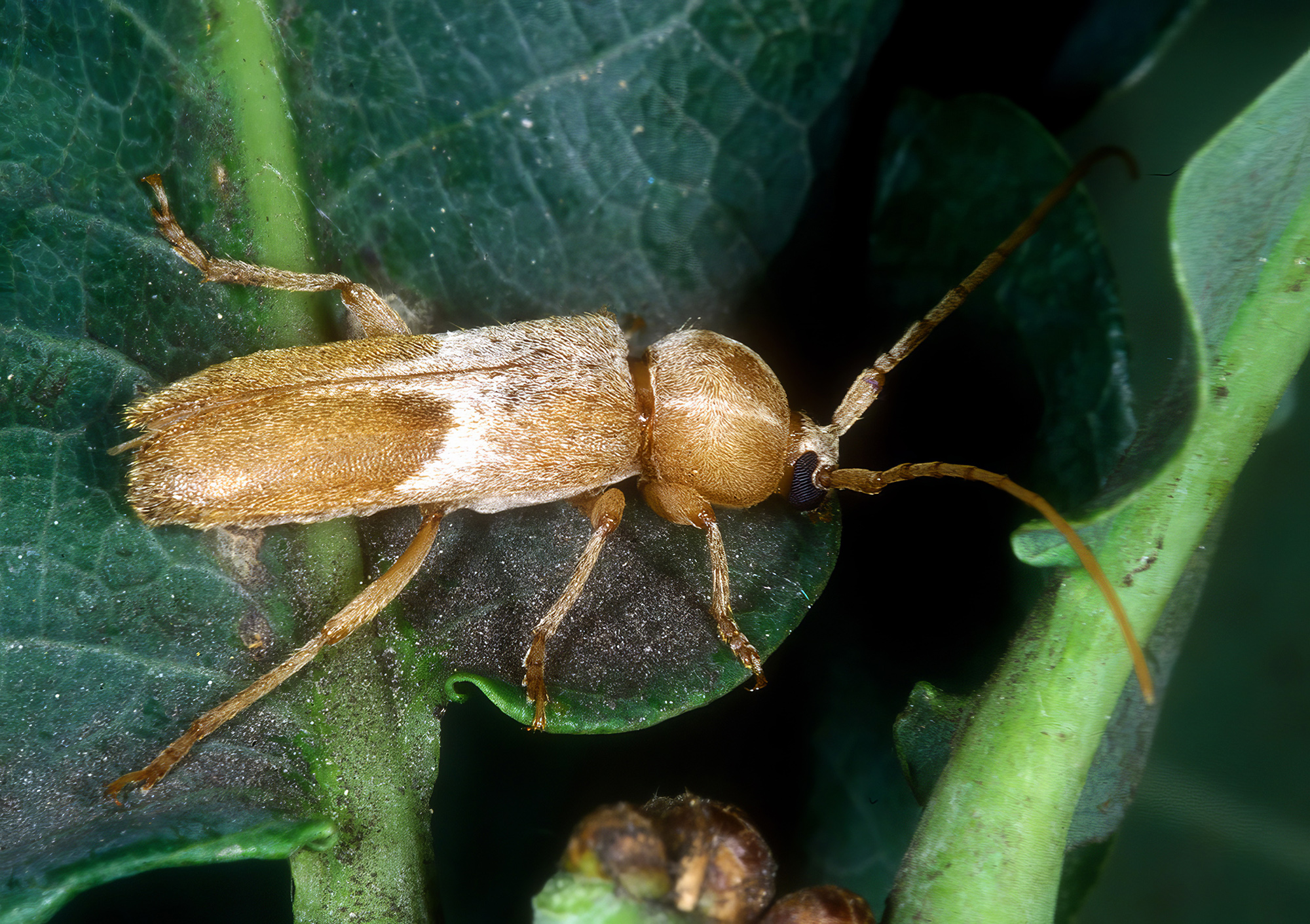
[Photo © Michal Hoskovec, Fuji Provia 100F 35 mm film scan]
Trichoferus lunatus has been described by Szallies [❖] according to a single specimen attracted to light and it is no surprise that there was no information regarding the biology of this highly interesting species. To our best knowledge the species has not been collected again since its description in 1994.
The life history of Trichoferus lunatus resembles Ropalopus varini to some extent. In 2001 we collected larvae of this species in thin terminal twigs of living Quercus brantii. The females of Trichoferus lunatus oviposit onto living terminal twigs. The young instar larvae girdle the twigs (severing the xylem) to interrupt the flow of water and solutes to the terminal leaves. This result in the slow death of the part of the twig distal to this girdle. The larvae continue mining in the dying part of the twig sometimes completely utilising it and leaving only the bark and small part of the grain. Pupation occurs in the part distal to the girdle. The development leasts 1 year [Rejzek M. et al., 2003; ❖].
Body length: 10 - 18 mm Life cycle: at least 1 year Adults in: July - August Host plant: Persian oak (Quercus brantii) Distribution: SE Turkey and also Iran
The depicted beetles were reared from oak (Quercus brantii) branches collected in Haberli 33 km SE Midyat (SE Turkey).
[❖]
Szallies A.:
Drei neue Coleopteren-Arten aus der Türkei (Coleoptera : Prostomidae, Cerambycidae)
Entomologische Zeitschrift 104: 259-263, 1994. [download]
Rejzek M., Sama G., Alziar G., Sádlo J.:
Host Plants of Longhorn Beetles (Coleoptera: Cerambycidae) from the Balkan Peninsula, Asia Minor and Iran.
Biocosme Mésogéen, Nice 19 (3): 161-189, 2003 [2002]. [download]
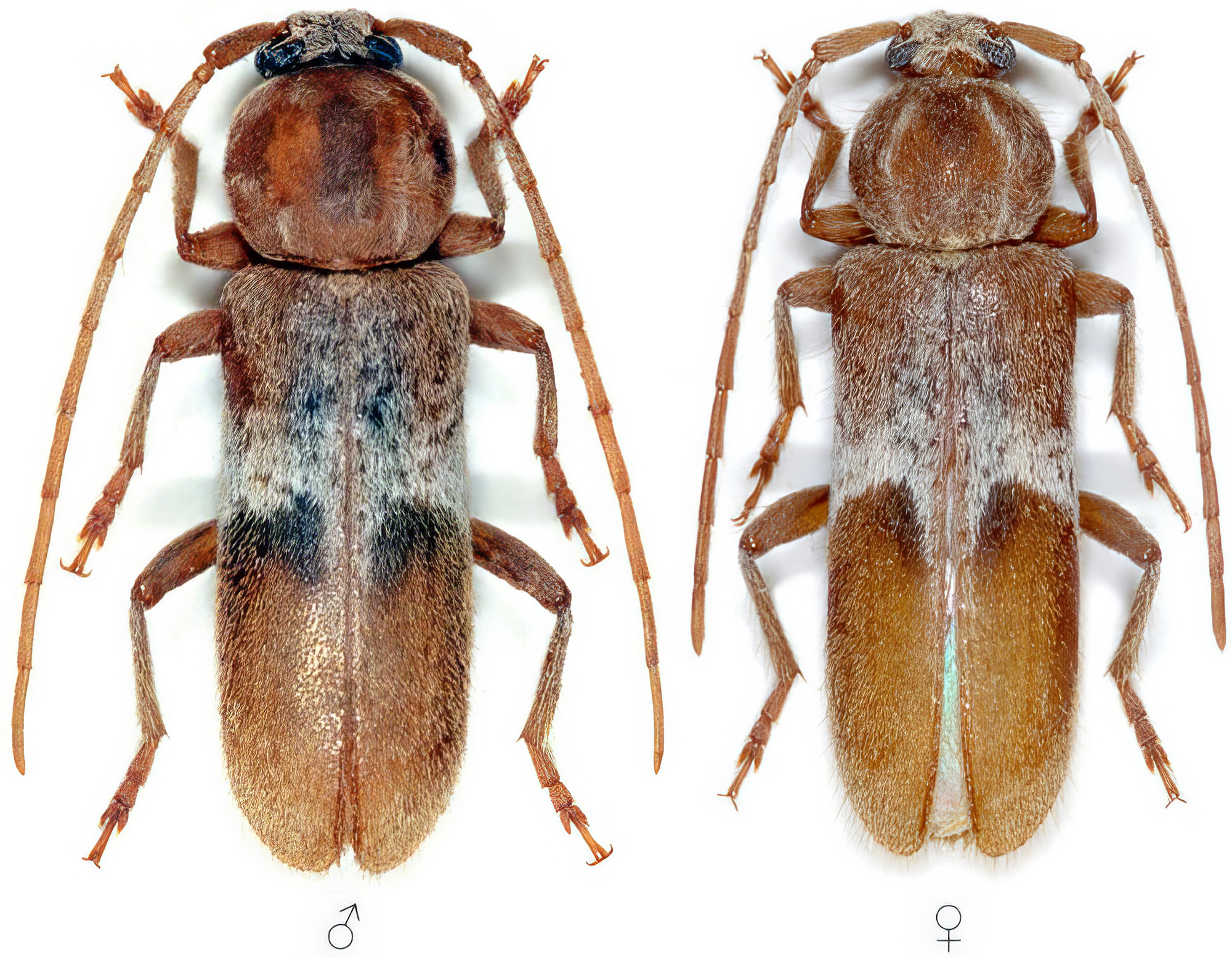
[Photo © Michal Hoskovec, Fuji Provia 100F 35 mm film scan]
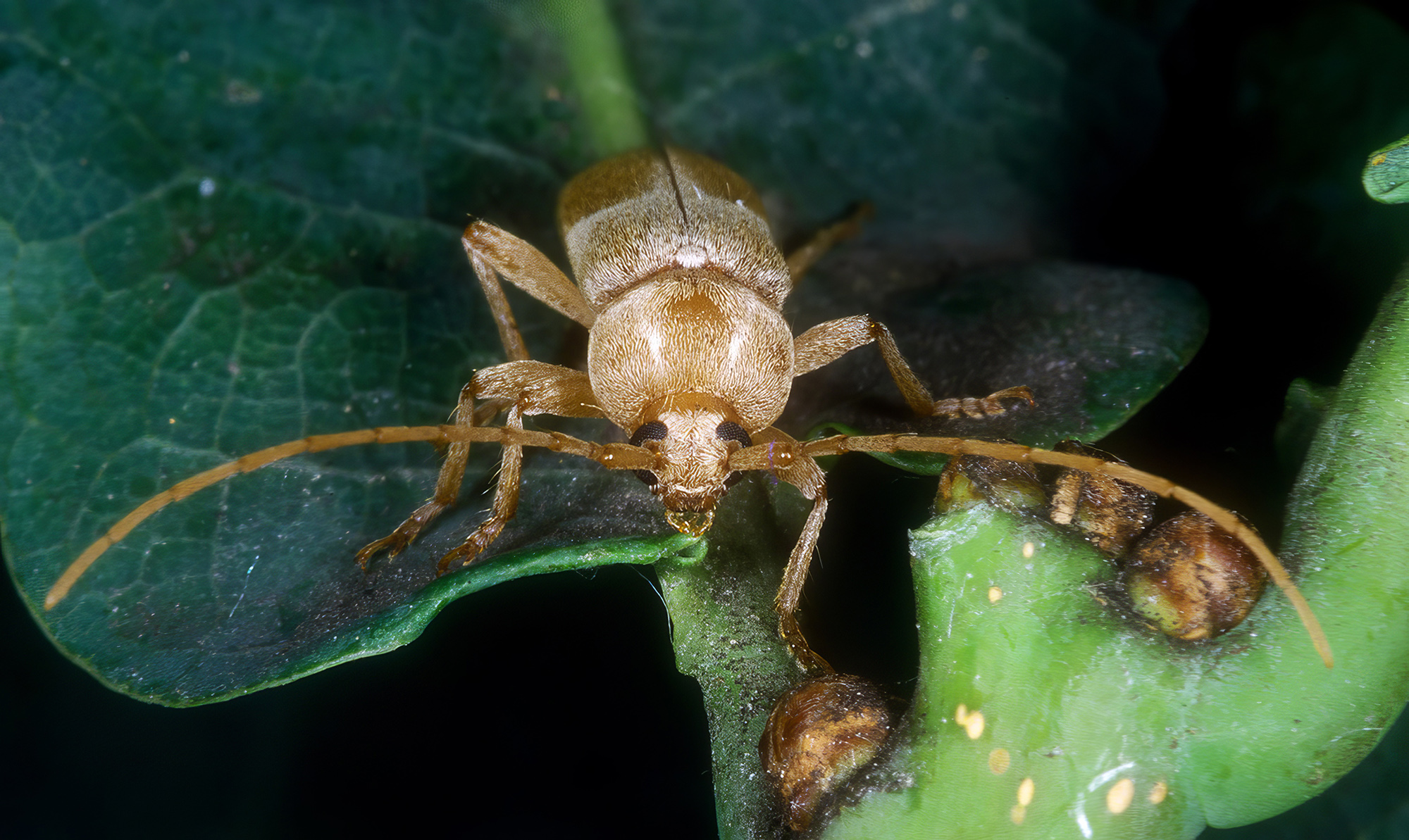
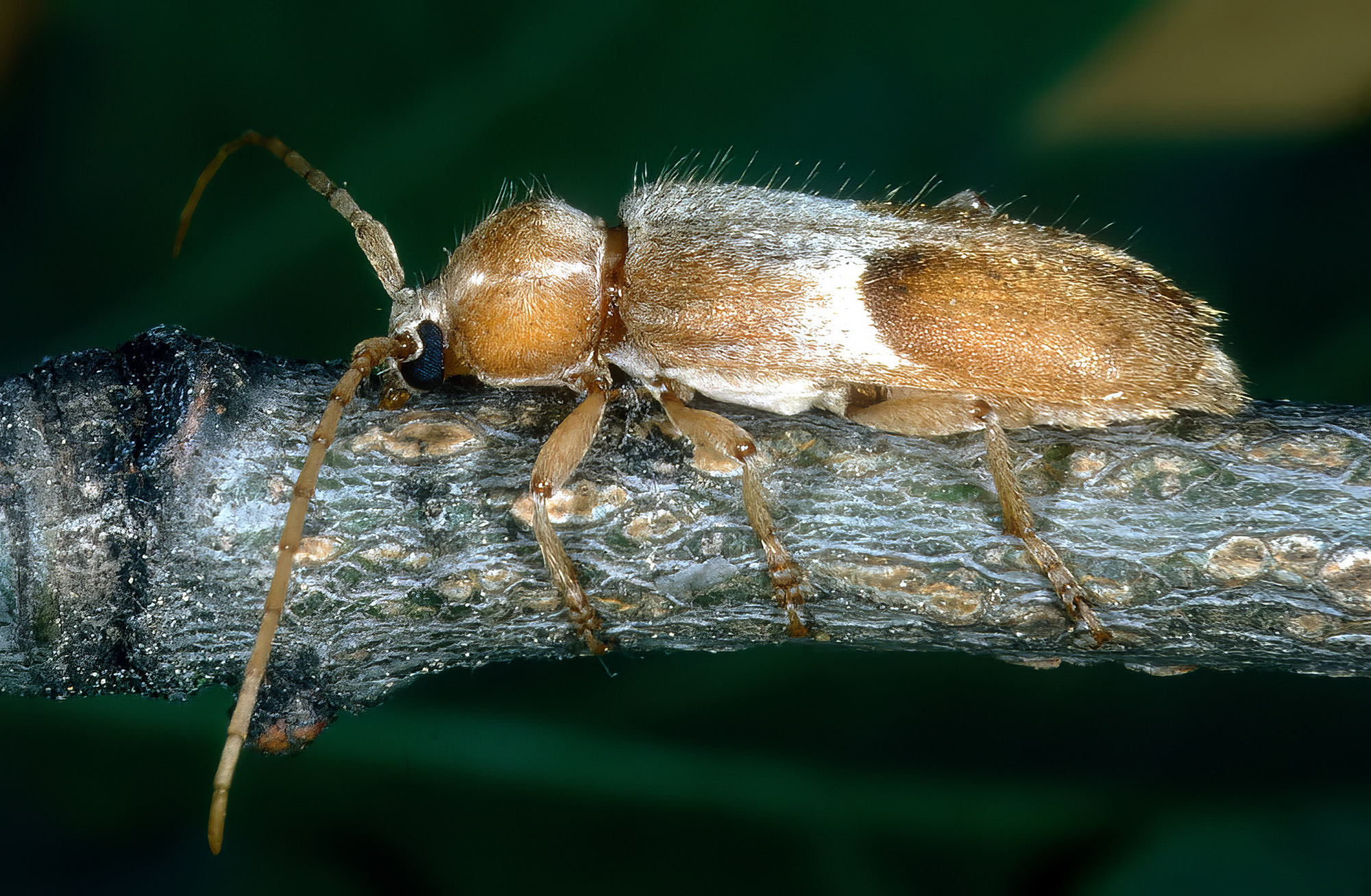
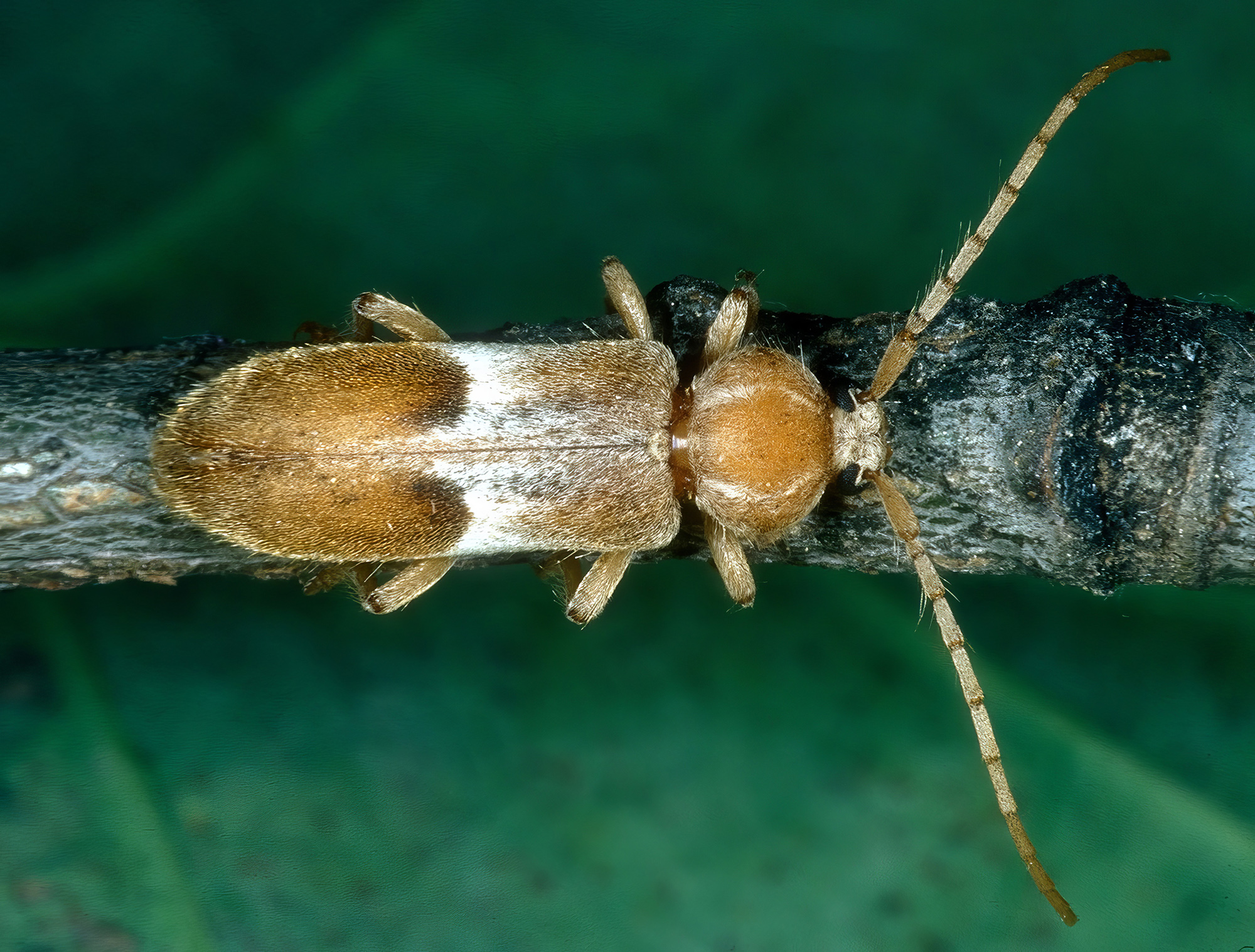
[Photo © Michal Hoskovec, Fuji Provia 100F 35 mm film scan]
| Subfamilia | Cerambycinae Latreille, 1802 |
| Tribus | Hesperophanini Mulsant, 1839 |
| Genus | Trichoferus Wollaston, 1854 |
| Species | Trichoferus lunatus (Szallies, 1994) |
